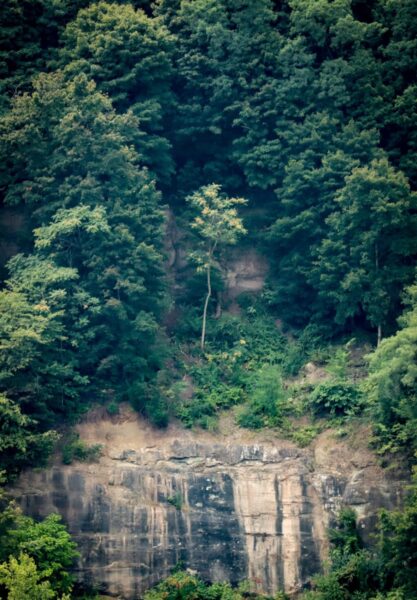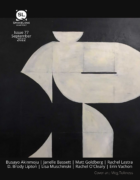The illness appears fully formed. Like fruit; green, still hard and hanging at the top of an unlikely tree. The doctors nod at their charts, the X-rays, and intermittently at the boy. He is so young, the men with the charts say. Newly formed, a child, how can they take that innocence away, or – looking at the boy’s father – how can they break that fragile spell of hope hanging over his face?
Sometime later, another doctor tells the boy about his condition. And about what to expect.
The diagnosis is a big, big word. Or it is two big words, either way they do not register in the boy’s mind as much as the explanation the doctor gives, with his gentle voice and brown, rubbery hands.
Think of a river, the doctor says. It is running its course, unobstructed, moving freely as rivers do. Then, someone rolls a boulder near it. Not enough that it touches the river, but very, very close. Over time, the boulder gathers moss, debris, it swells and its sides begin to eat into the river.
This is where the doctor pauses, to ask the boy if he understands.
Is this clear to you so far? Because this is the important point: we cannot remove the boulder without hurting the river, causing more damage than even the boulder could do. We also cannot sit down and watch – the boulder could break off and poison other rivers too.
A decision has to be made.
The doctor turns to the boy’s father; a man with newly sprouted grey hairs, dirt under his nails and a jacket that looks unwashed.
But what do we do? What? the father asks.
A terrible question, the boy thinks.
Because the answer does not matter. What do we do? As though one has a real choice in the outcome: the decision of what death to choose. It is as pointless as asking who rolled the boulder there in the first place. Who sets out to kill a river?
Does an answered why change the outcome?
The boy looks outside his hospital window, his breathing heavy and laboured in his ears, the tree outside bare of flowers, of fruit. It has only its tiny leaves.
For a moment the boy forgets the story about boulders, rivers. He forgets his father’s worried face. Instead, he thinks about that cyclical thing: the tree that had its flowers broken off, now with its new leaves, giving it all another try.



 The SmokeLong Grand Micro Contest (The Mikey) is now an annual competition celebrating and compensating the best micro fiction and nonfiction online.
The SmokeLong Grand Micro Contest (The Mikey) is now an annual competition celebrating and compensating the best micro fiction and nonfiction online.